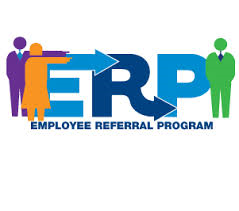Several weeks ago I was speaking in Nebraska for the state home care association, and the next week I was speaking in Indiana. In both of those association conferences, the biggest barrier that home care leaders talked about was finding and keeping enough staff to grow their businesses. We talked about the process of finding and keeping top talent in your agency and we shared some of the data from our research.
Employee Referral Program is #2
According to the 2015 Private Duty Benchmarking Study from Home Care Pulse, the number one source of new caregivers for the 700 plus companies who responded to the survey was “internet – craigslist.org. Number 2 was employee referrals. This is consistent with the 2015 Private Duty Recruiting Study conducted by Leading Home Care and Caregiver Quality Assurance. According to our study, 74.43% of agencies reported using their Employee Referral Program to recruit high quality applicants.
While nearly three quarters of home care agencies have an employee referral program, not all of them find it effective. As we studied this issue we discovered a number of factors that influence the effectiveness of your ERP.
What is an ERP?
An Employee Referral Program is a systematic process where current employees of your home care company can refer family members, friends, or acquaintances as possible companion caregivers or Certified Home Health Aides. Your program may also be tapped to recruit other key employees such as scheduling coordinators, bookkeepers, administrative assistants, or other key members of your home care office team.
A successful ERP in home care has four cornerstones:
- Communicate regularly with your employees about your need for caregivers.
- Provide an easy-to-use system for employees to make referrals.
- Operate an efficient, effective selection and hiring process so it is easy for the referred job candidate to come to work for you.
- Recognize and reward your employees for referring new caregivers.
Why Institute an ERP?
There are five primary reasons why you should consider starting an Employee Referral Program in your company:
- Low cost per hire. Referral programs cost $500 for exempt employees and $70 for non-exempt, versus $2,884 and $726 for print advertising, and even more for agencies and executive recruiting firms, according to the Employment Management Association’s cost-per-hire survey.
- High-quality hires. Employees are unlikely to recommend people who they think are unqualified or unreliable. Research conducted by Leading Home Care … a Tweed Jeffries company in 2015 showed that employee referrals are the third most effective method of finding high-quality candidates, after nursing schools, and faith-based recruiting.
- Decreased time in hiring. Employees are selling the company to the people they refer. Interviewers can spend their time evaluating a candidate’s background and qualifications. Employees also tend to recommend people who they know are ready to make a job change, which also speeds the hiring process.
- An opportunity to strengthen the bond with existing employees. Referral programs acknowledge and reinforce the company’s commitment to rewarding the individual for helping the company.
- Employee retention. An Ohio State University study shows that employees hired through referrals have a retention rate that’s 25 percent higher than that of employees hired through other methods.
What Motivates Employee Referrals?
A recent survey of employees in a dozen industries by Referral Networks, a New York City-based company, gives some insight into what it costs to get employees interested in making referrals.
- Forty-two percent of the 2,300 employees surveyed by Referral Networks said they referred because they want to help a friend find a good job.
- Twenty-four percent said they wanted to help the company. Another 24 percent said they were motivated by a reward, according to the survey.
- Eighty five percent of the respondents said they’d be motivated by a reward of $1,000 or less.
- Thirty-two percent of those said they’d be happy with a sum between $100 and $400.
Pay Incentives that Matter
The survey asked owners of private duty companies how much they paid employees as an incentive to refer their friends and family as prospective caregivers. Here are the results:
- 37.74% paid $25 to $50
- 28.30 paid $51 to $100
- 28.30% paid $101 to $250
- 3.77% paid $251 to $500
We also heard from many companies who reward their employees for making referrals with tangible items like gas cards, movie passes, grocery store cards, and points to be redeemed for merchandise. However, it appears that those companies that use cash bonuses have better results and get more referrals.
For more information on the most effective methods of recruiting non-medical caregivers, consider becoming a member of Caregiver Quality Assurance. This program, created by Leading Home Care is designed to help you recruit, select, train, and retain high quality caregivers. For a 30 day Free Trial, contact Diane West at 502-339-0653.
PS: Get a 15% discount when you order a copy of the 2015 Private Duty Benchmarking Study from Home Care Pulse by using the discount code LEAD15.




